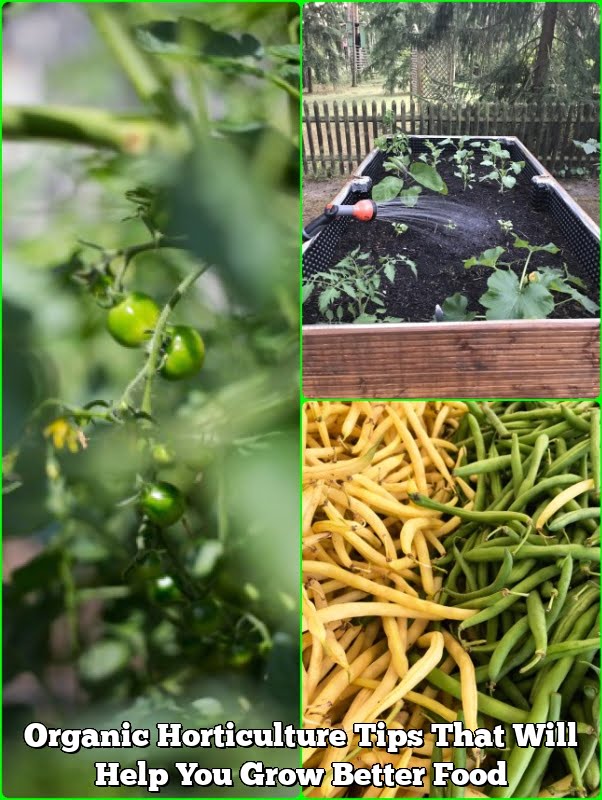The world of organic gardening is very vast and exciting. There are so many ways that one can enter and use their knowledge of this field to help themselves grow healthier “green” plants. It depends completely on your skills and environment. That said, no matter what your organic gardening skills are, here are some tips to help you along.
When you buy seeds for your garden, be sure to purchase seeds that are labeled “certified organic.” This ensures that your plants will be organic throughout their lifespan and that the seeds you are buying aren’t contaminated with chemical fertilizers or pesticides. Watch out for labels, such as “genetically engineered” or any mention of “natural” that does not include the phrase “certified organic.”
Plant your own seeds to guarantee organic produce. Sowing your own vegetable seeds gives you the comfort and assurance that your produce has been grown organically from seed to table. Choose plants that are easy to germinate such as broccoli, cabbage, basil and tomatoes. Find out the best time of the year to sprout your chosen produce.
Use a raised garden bed when planting your plants. Not only does it provide a minor defense against the common vegetable pests, raised garden beds are also warmer during the spring. The planter becomes warmer because it isn’t surrounded by several inches of isolating ground-soil. The warmer climate will result you being able to plant earlier.
Regulate how often you revitalize your soil based on your planting season. During a very long season it might require you to fertilize the ground more than once. It’s important to give your plants the proper nutrients to grow, and remember that as plants grow the nutrients within the soil slowly diminish. Having the correct amount at the correct time will promote your harvest to grow to its maximal size.
An organic alternative to chemical fertilizer is compost. You can make your own compost by using fruits, vegetables and other organic wastes from your home. Compost gives your soil the nutrients it needs and improves its structure.
If your backyard soil isn’t conducive to an organic garden, try installing a raised bed. Within the raised bed, you can create your own mix of soil and compost to achieve the ideal soil for raising your crops. Just be sure the bed is at least 16 inches high so that roots have room to flourish.
The best way to weed your organic garden is the old-fashioned way, pulling the weeds out by hand. Even though organic herbicides sold at the store are tempting, they aren’t nearly as effective as getting on your hands and knees and pulling the weeds out by hand. It’s also very invigorating to do it yourself. It gives you a sense of accomplishment.
For indoor organic gardening, temperature control is very important during the early phases. Seventy degrees Fahrenheit is the ideal temperature for most seeds to start growing. You can achieve this temperature relatively easily by installing heaters and placing the seeds near the vents. You can also purchase heat mats to place under your plant containers.
If you follow proper organic growing conditions you may find that you are better able to market your produce at the local fruit stands and farmer’s markets. Organic produce is very popular now because people are beginning to see all the health benefits of eating an organic whole food diet.
If slugs are a problem in your garden, use a beer trap to kill them naturally. Take a glass jar and bury it in your garden so that the top of it is level with the soil. Pour beer into the container to within an inch of the jar lip. Slugs will crawl into the jar to get the beer and not be able to get out again.
Treat your roses! To naturally remedy black spots on roses in your organic garden, use milk! For some unknown reason – using a 1:2 ratio mixture of milk and water – has been shown to get rid of black spots! Use a spray bottle to apply the mixture directly to the leaves of the affected plant.
To keep dirt from getting stuck in the leaves of lettuce and other leafy vegetables, use mulch. When the plants appear, spread an inch or two of mulch around the base of the plants. This will prevent dirt from getting into the plant and also help prevent pesky weeds. Just be sure that the mulch is organic and untreated by pesticides.
When you are digging holes in your yard in which to plant shrubs, bushes, or trees, do not make it perfect. Holes with perfect sides will actually work against you by restricting plant growth. The roots cannot penetrate the sheer face made by a shovel.
If you so choose to organic garden your trees, flowers, and shrubs, it is very important that you surround them with at least 2 to 3 inches of organic material. This will provide your plants with the organic nutrients that they need. As rain falls, it will release the nutrients to the plants.
Have you ever given any thought to using organic gardening methods to grow garlic? Garlic cloves may be planted in soil with good drainage in either the spring or fall. Plant them an inch or two below the soil line with the pointed end facing the sky. Each clove should be around 4 inches from the one beside it. Garlic stalks can be used as they grow for chives or scallions in any recipe. The bulbs are ripe for harvesting when the tops area turns brown. The bulbs should be allowed to dry in the sunshine for a few days; the heat will harden the skin. They could be stored in an area that is cold, tied or loose in bunches.
Organic gardening is a fascinating and exciting world that is only limited by your knowledge and environment. There are endless products and techniques you can sue for your organic garden. Start experimenting to find something new to use on your organic garden or even improve upon a technique. Use these tips to grow!

If you’re looking to get into vegetable gardening, or are just looking for some tips on how to make your current garden better, then you’ve come to the right place! My name is Ethel and I have been gardening for years. In this blog, I’m going to share with you some of my best tips on how to create a successful vegetable garden.





